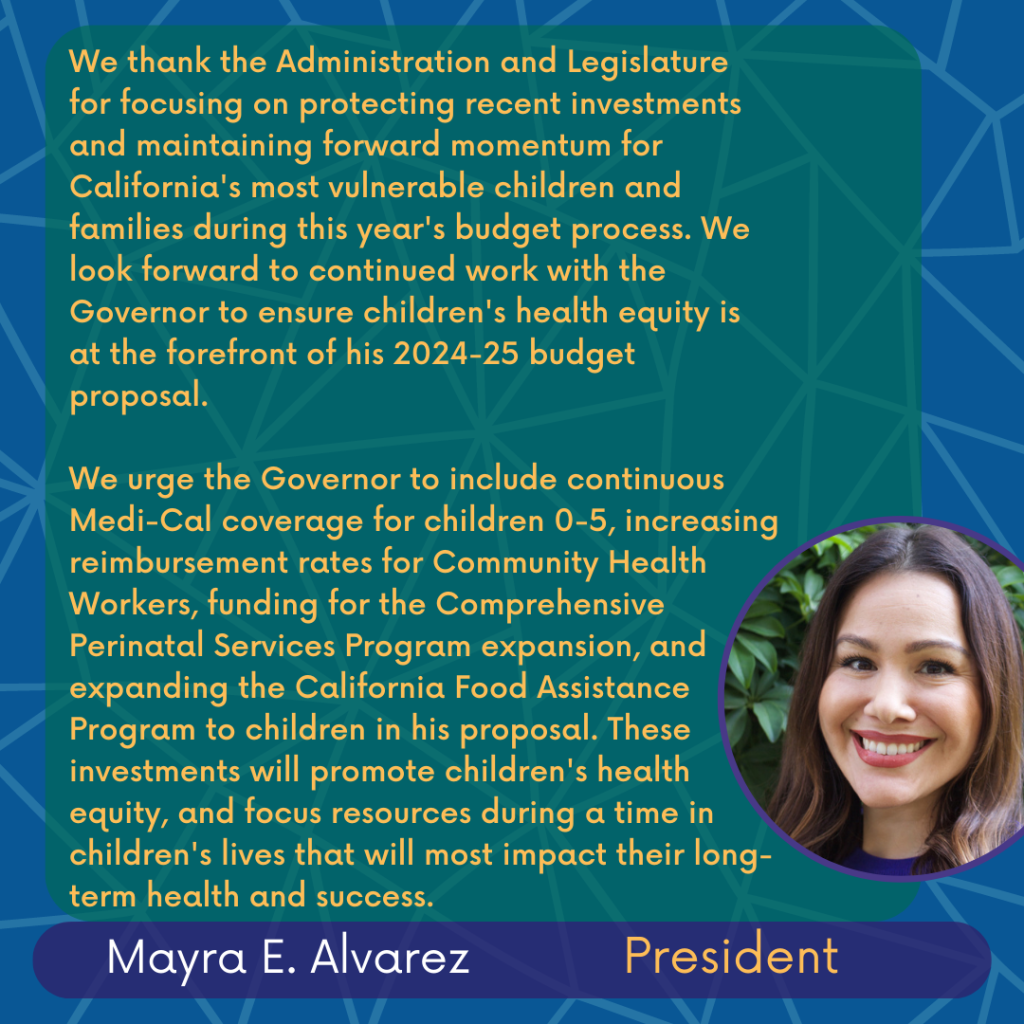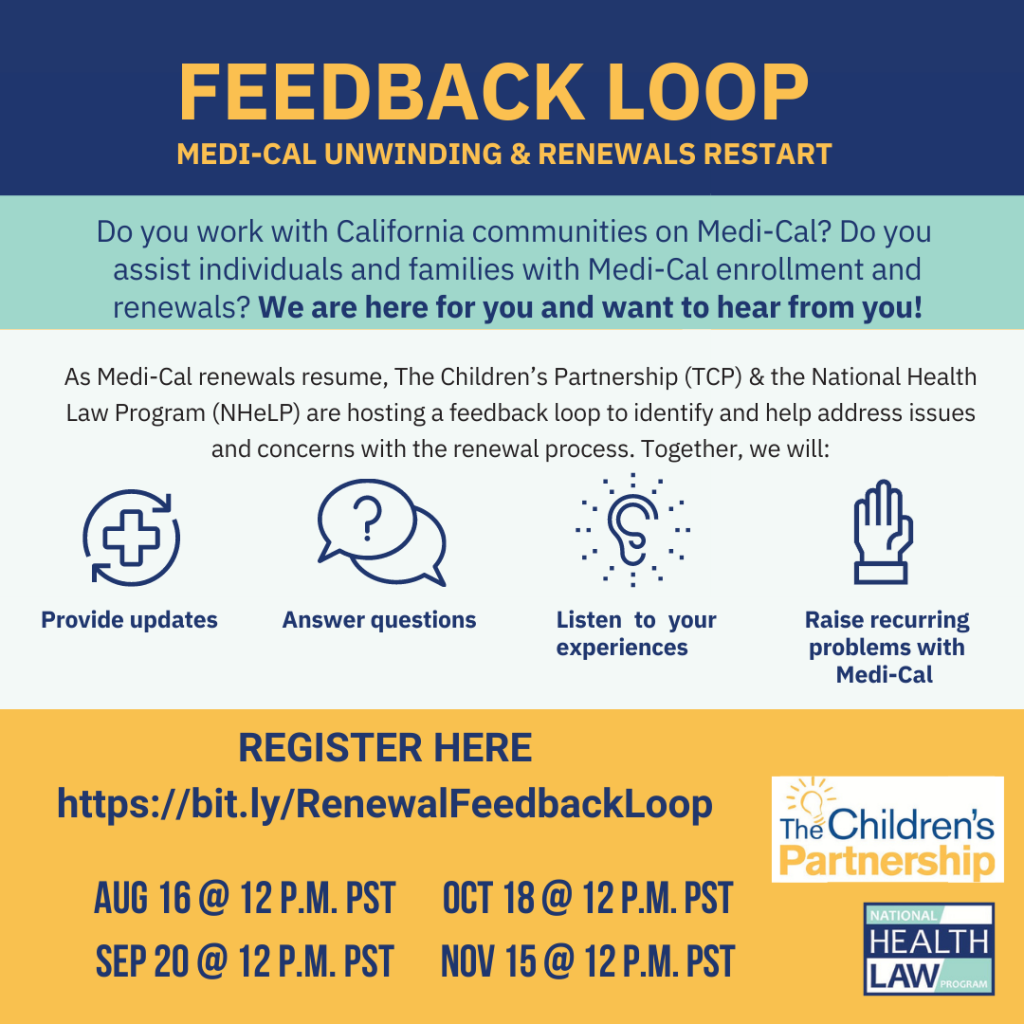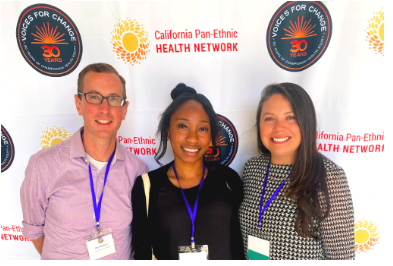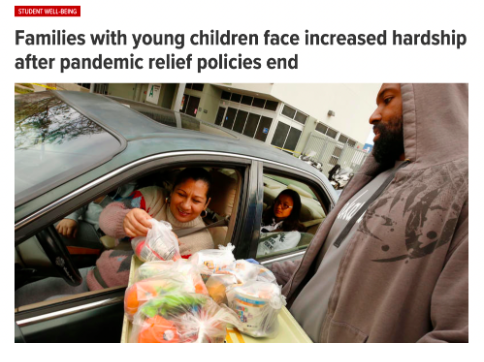July Newsletter


2023-24 California Budget: Children’s Health Equity Opportunities
Governor Newsom recently signed key pieces of the 2023-24 state budget deal reached with lawmakers. We are grateful for key protections in the budget for the health and well-being of California’s children and the adults they rely on. The final state budget:
- Protects and expands health coverage for millions of Californians.
- Includes an expansion of California food benefits to people over 55.
- Reinstates the Managed Care Organization (MCO) tax to increase funds for improving access to care in Medi-Cal.
- Invests in recruiting, training, and certifying community health workers.
- Improves reimbursement rates in primary care, specialty care, hospitals, clinics, community health workers, behavioral health, and reproductive health care.
- Invests in child care by creating permanent reform for racist child care family fees, and provides one-time funding to increase child care provider rates.
- Funds Court Appointed Special Advocates (CASA) programs for foster youth.
- Creates a permanent 10% increase in CalWORKs grants.
There are still opportunities to include critical supports that advance health equity and racial justice for our state’s children and their families. The budget can be amended until September 14, 2023, when the Legislature adjourns for interim recess.
There were several missed opportunities in the interim budget that we urge Governor Newsom to prioritize funding for:
- Implement continuous Medi-Cal health coverage for young children 0-5 so that they can receive uninterrupted access to health care.
- Extend social support benefits of Medi-Cal’s Comprehensive Perinatal Services Program to 12 months postpartum to protect maternal and infant health.
- Increase reimbursement rates for Community Health Workers in Medi-Cal so that they are paid a thriving wage.
- Expand the California Food Assistance Program (CAFP) to include children, youth and all ages regardless of immigration status so that families are nourished.
- Pull back on funding delays for broadband to give families high quality, affordable internet so they can access digital health, nutrition, housing and education services.
- Expand unemployment benefits to include all people, no matter their immigration status, to support the one in five California children who live in a home with an undocumented parent.
- Create the Health Equity Racial Justice Fund to help address health inequality among California’s Black, Indigenous, Latinx, Asian, multiracial and other children of color.
- Maintain and expand commitments in environmental justice that support the health of children of color and their families.
These investments will improve health outcomes for Black, Indigenous, Latinx, Asian, multiracial and other children of color in California. They will have a positive impact on historically marginalized groups such as children in immigrant families and LGBTQ+ children.
TCP will continue to work with our partners using policy, research and community engagement to ensure that California is a state where all children can grow up healthy and thrive.

Support Our Bills
We appreciate your support of TCP-sponsored bills that advance health equity for children of color! See below for opportunities to support three of our co-sponsored bills. Please submit letters via the advocate’s portal.
- AB 1202 (Lackey) increases access to health services and providers that support the health development of children in Medi-Cal. AB 1202 will be heard in Senate Appropriations on August 14, and will likely go to suspense. Please submit letters by August 24. [Letter of Support] [Fact Sheet]
- AB 289 (Holden) ensures youth have a voice in local investments that support mental health and well-being. AB 289 will next be heard in the Senate Appropriations Committee on 8/14. Please submit letters by 8/7. [Letter of Support] [Fact Sheet]
- AB 608 (Schiavo) supports the social and developmental health needs of birthing people, babies and toddlers. It will be heard in the Senate Appropriations Committee on 8/14, and will likely go to suspense. Please submit letters by August 24.[Letter of Support] [Fact Sheet]
Medi-Cal Renewals

We appreciate your support of TCP-sponsored bills that advance health equity for children of color! See below for opportunities to support three of our co-sponsored bills. Please submit letters via the advocate’s portal.
- AB 1202 (Lackey) increases access to health services and providers that support the health development of children in Medi-Cal. AB 1202 will be heard in Senate Appropriations on August 14, and will likely go to suspense. Please submit letters by August 24. [Letter of Support] [Fact Sheet]
- AB 289 (Holden) ensures youth have a voice in local investments that support mental health and well-being. AB 289 will next be heard in the Senate Appropriations Committee on 8/14. Please submit letters by 8/7. [Letter of Support] [Fact Sheet]
- AB 608 (Schiavo) supports the social and developmental health needs of birthing people, babies and toddlers. It will be heard in the Senate Appropriations Committee on 8/14, and will likely go to suspense. Please submit letters by August 24.[Letter of Support] [Fact Sheet]
- Medi-Cal will release its first disenrollment data in early August. In the meantime, we are hearing consistent concerns with long call wait times and county Medi-Cal offices not receiving documents families are submitting. In addition, some organizations are reporting families being disenrolled despite submitting paperwork and appearing eligible. Please share this monthly feedback loop opportunity with your partners and join us for next month’s meeting on August 19.
Governor Proposes Significant Reforms to Mental Health Services – TCP Working to Ensure Children and Youth Kept Whole
Earlier this year, Governor Newsom revealed his proposal to significantly redesign the Mental Health Services Act (MHSA), a millionaire’s tax passed by voters in 2004 that generates over $3.5 billion annually for mental health services. Presently, current law and regulations require counties to spend about 10% of their MHSA revenue on prevention and early intervention services for children and youth which amounts to ongoing investments of over $320 million annually across the state. The Governor’s proposal includes significant changes to how counties would be expected to direct their MHSA resources, while unfortunately neglecting to preserve the important set-asides for children and youth.
The administration and legislature have made historic and important reforms to the mental health ecosystem of care through Medi-Cal reforms in CalAIM and historic one-time investment in the Children and Youth Behavioral Health Initiative, and these reforms are built on the foundation for children and youth that the MHSA has sustained in counties for the last twenty years. TCP looks forward to partnering with the Administration and legislature to ensure that children and youth are kept whole in terms of the overall ongoing investments in the MHSA and that our state continues to be a leader in ensuring the mental health and well-being of all of California’s children and youth.
For more information:
- TCP Slides from “Impact of the Governor’s Proposed Changes to the Mental Health Services Act (Prop. 63) on Organizations Serving Children” (Children Now webinar – July 6, 2023)
- Analysis on MHSA Reform Proposal from the Legislative Analyst’s Office
- The Next Step to Transform California’s Behavioral Health System (CalHHS)


CPEHN Conference
As part of CPEHN’s Voices for Change Conference Workshop, Liza Davis, director of community engagement and advocacy (pictured above, right), moderated a panel of CHWPR Policy Coalition steering committee members to preview the coalition’s policy agenda. The Children’s Partnership is proud to join our partners in leading the development of a statewide policy agenda that reflects the current status of the CHWPR workforce, the needs of CHWPRs to succeed, and policy solutions to grow the CHWPR workforce in a way that ensures equity and sustainability for CHWPRs.
You can learn more about the CHWPR Policy Coalition here.

Revolutionizing the Health of Undocumented Communities
On July 13, at the 3rd annual Pre-Health Conference, Revolutionizing the Health of Undocumented Communities, we presented three factsheets pertaining to the health equity of 3 important California demographics of children.
Asian American Children’s Snapshot
Native Hawaiian and Pacific Islander Children’s Snapshot
Children in Immigrant Families Snapshot
TCP’s Managing Director of Policy, Gabriella Barbosa, and Senior Policy Associate, Gabby Benitez, presented at the Revolutionizing the Health of Undocumented Communities: Pre-health Dreamers’ 3rd annual conference on TCP’s A Child is a Child campaign. They shared TCP’s approach to utilizing data in children’s advocacy and to specifically center children from historically marginalized communities and highlight strengths, assets, and challenges. This research and campaign lays the foundation for a collective equity agenda to transform current programs and policies that support the health and well-being of children.
Digital Equity Rally
Earlier this month, TCP rallied with our partners at Digital Equity LA outside the district office of Senator Steven Bradford, who chairs the Senate Utilities Committee, to call for passage of strong digital equity legislation. Together, we demanded that the California legislature hold the broadband industry accountable for ensuring equal access to the internet for all Californians. Digital equity is a core social driver of health, essential for families to access education, health care, housing, and economic opportunities. Yet, research has demonstrated that big internet service providers discriminate against low-income communities of color and that they drastically raised prices for entry-level services at the beginning of the pandemic, reinforcing and exacerbating racial health inequities.
TCP President Mayra E. Alvarez Talks To EdSource About Economic Policies During Pandemic

A recent article in EdSource highlights the increased hardship families with young children face after pandemic relief policies end. In the article, TCP President Mayra E. Alvarez states: “I believe that this data makes clear that poverty is a policy choice…During the pandemic, rules were put in place to make accessing services and programs easier for families. We have to ask ourselves, why can’t it always be this way?”
The article highlights the latest findings from the RAPID survey, a national survey of parents and guardians with children from birth to 5 years old, conducted by researchers at the Stanford Center for Early Childhood. The group has collected answers to survey questions from 14,357 parents of young children nationwide every month between April 2020 and April 2023. Questions asked included whether parents could pay for food, child care and housing.
With this national data, it is clear that California families of young children continue to need support from essential public programs and investments. There is opportunity for California policymakers to learn from the data and put in place more policies to help children from an early age.
In particular, Mayra shared about the urgent need for California to do something to help young children keep health insurance now that pandemic-era requirements to keep continuous Medi-Cal coverage have ended. She shared that an estimated 2-3 million Californians could lose coverage, including between 800,000 and 1 million children. TCP wrote about this risk and what California can do about it in our recent brief: “Learning From the Pandemic: How Medi-Cal Continuous Coverage Protects California Kids.” Last year, the state of California committed to moving forward continuous coverage in Medi-Cal for children from birth to age 5, but it won’t be implemented until 2025. TCP and many of our partners are advocating for movement as soon as possible.
“This delay in implementation places thousands of children at risk of losing coverage unnecessarily, and it’s why we, alongside many partners, are asking the administration to move forward with implementation as quickly as possible,” Mayra shared.
